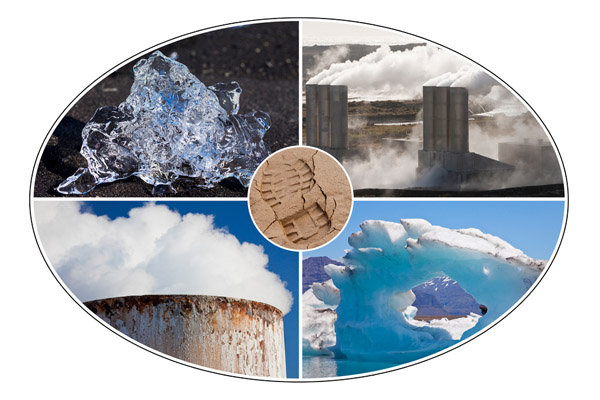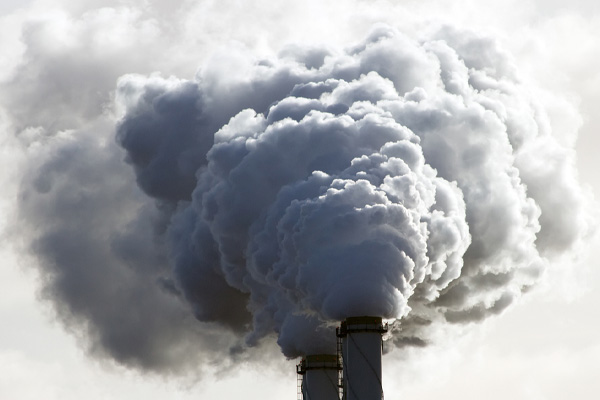Contents
- 0.1 What Is A Carbon Footprint?
- 0.2 Types of Emissions: Direct or Indirect Carbon Emissions
- 0.3 How Bioheat® Heating Oil Reduces Greenhouse Gas Emissions
- 0.4 How Bioheat® Heating Oil Burns Cleaner Than Home Heating Oil
- 0.5 ULSHO: High BTUs & Almost Zero Particulate Emissions
- 0.6 Conclusion
- 1 Call Wilcox Energy To Order Bioheat® Heating Oil Today
 Alternative energy is at the height of popularity. This didn’t happen by accident, as the past 100 years have taught us that several of our practices result in global warming and other problematic situations. Therefore, effective tactics are needed to ensure that we lower our carbon footprints.
Alternative energy is at the height of popularity. This didn’t happen by accident, as the past 100 years have taught us that several of our practices result in global warming and other problematic situations. Therefore, effective tactics are needed to ensure that we lower our carbon footprints.
It is not surprising that biofuels are part of this plan. Biofuels are plant-based liquid fuels that are an effective alternative source of energy. They are also a form of renewable energy, which means they won’t run out in the future.
Accordingly, this article discusses everything you need to know regarding biofuels and how they can help us reduce our carbon footprints. Keep reading to see how switching to Bioheat® heating oil throughout the southern Connecticut shoreline can protect the environment.
This article includes the following topics:
- The Definition Of A Carbon Footprint
- How Bioheat® Heating Oil Reduces Greenhouse Gas Emissions
- How Bioheat® Heating Oil Burns Cleaner Than Home Heating Oil
- ULSHO: High BTUs And Almost Zero Particulate Emissions
- Carbon Footprint: An Accurate Definition Of An Often-Used Phrase
What Is A Carbon Footprint?
Wikipedia states that a carbon footprint is a combination of the total greenhouse gas (GHG) emissions from a service, place, product, organization, individual, or event. Overall, a carbon footprint equals the total amount of carbon dioxide that’s emitted from each possibility mentioned above.
It is a challenge in many ways to determine and precisely calculate a complete carbon footprint. However, Kemp, Wright, and Williams specifically utilize a version of the definition below:
Carbon footprint is measured by adding the total CO2 and methane emissions of a specific system, activity, or population. It includes all important storage, sources, and sinks within the spatial or temporal boundaries of a system, activity, or population.
Source: ‘Carbon footprinting’: Towards a universally accepted definition
Types of Emissions: Direct or Indirect Carbon Emissions

It is difficult to measure carbon emissions accurately due to the multiple types of CO2 emissions that need to be tracked. They include the ones below:
- Direct Carbon Emissions – Direct carbon emissions are called Scope 1 emissions as well. They are obtained from sources that produce or deliver services or products. Some examples of these are personal cars, gas-burning stoves, and burning fuel on a job site.
- Indirect Carbon Emissions – Also called Scope 2 or Scope 3 emissions, indirect carbon emissions are from downstream or upstream sources. Indirect downstream carbon emissions include waste or product transportation and product-related emissions. On the other hand, indirect upstream emissions include materials transportation and waste that a production facility produces outside.
How Bioheat® Heating Oil Reduces Greenhouse Gas Emissions
Energy.gov states that the US Department of Energy is fully committed to promoting the use of clean alternative energy. Some of these energy sources are known as biofuels, which are affordable and abundant resources. They are also readily available to use throughout the country.
More importantly, the United States’ energy consumption is increasing. It is expected that the US will consume 50% more energy than it currently does by 2030. Incorporating Bioheat® Home Heating Oil into your life means you can reduce your personal GHG emissions, doing your part in protecting the environment.
How do biofuels help cut down greenhouse gas emissions?
The following are a few essential facts regarding this renewable fuel:
- Bioheat® heating oil has a cleaner burn than traditional heating oil. It’s completely biodegradable, so fewer GHG emissions are created.
- Bioheat® home heating oil is currently the only liquid heating fuel that can reduce carbon emissions. The heating industry is ahead of schedule regarding its ultimate goal of achieving net-zero carbon emissions by 2050.
- Bioheat® fuel oil is derived from renewable agricultural byproducts, such as fats, tallows, cooking oils, inedible corn oil, canola oil, soybean oil, and other recycled oils. This leads to the creation of effective liquid heating fuel with less greenhouse gas emissions.
- Bioheat® heating oil specifically reduces the amount of particulate matter, mercury emissions, SOx, and CO2 emissions by a wide margin. B100-grade biofuels will have zero CO2 emissions by the mid-century.
How Bioheat® Heating Oil Burns Cleaner Than Home Heating Oil
Bioheat® heating oil is highly effective because it is wholly biodegradable and non-toxic. It also produces fewer pollutants than traditional heating oil. Some of these pollutants include carbon monoxide, sulfur dioxide, and hydrocarbons. It also has fewer nitrogen oxide emissions but on a lesser margin.
Bioheat® Heating Oil can help lower your carbon footprint.
When you burn a cleaner heating fuel, you get these benefits:
- Fewer greenhouse gas emissions
- Fewer nitrogen oxide emissions
- Reduced sulfur emissions
- Reduced carbon dioxide emissions
- Extended lifespan for furnaces and boilers resulting in less landfill waste
Improve your carbon footprint today and contact Wilcox Energy when you are ready to switch to Bioheat® Heating Oil in southern Connecticut.
ULSHO: High BTUs & Almost Zero Particulate Emissions

ULSHO is the acronym for ultra-low sulfur heating oil. You might not know it, but sulfur is one of the primary causes of the creation of greenhouse gasses.
Wilcox Energy is developing a cleaner type of alternative energy. This way, residents and businesses hastily reduce their carbon emissions and lower their carbon footprints.
Several crucial facts about ULSHOs are:
- You don’t need to install a new heating system, perform any modifications, or pay high added costs.
- It emits 40 times less soot.
- ULSHO has 97% less airborne emissions.
- Its development utilizes 99% less sulfur.
- It has up to 30% fewer NOx emissions.
- ULSHO has more than 90% less ash buildup.
- It only has 15 ppm sulfur content than 2000 ppm sulfur content.
Conclusion
Without a doubt, you understand the power of biofuels by now and how it is an effective alternative energy source. This fuel derived from plants helps lower CO2 emissions by a wide margin. Wilcox Energy aims to eliminate carbon emissions completely and achieve net-zero emissions by 2050.
Are you ready to protect the Earth for future generations and claim ownership of the environment? Call Wilcox Energy right away once you are prepared to make a difference. We will help you get ready to join the fight by heating your home with Bioheat® Heating Oil in southern Connecticut.
Rest assured, it is an alternative energy source that burns clean. It is also efficient, affordable, and the only economical method to reduce your carbon output immediately.
Call Wilcox Energy To Order Bioheat® Heating Oil Today

As mentioned above, Bioheat® heating oil packs all the benefits of a premium heating oil in one. It can be used with traditional heating systems without any adjustments, cutting the costs of modifications and converting to other heat sources. As a biodiesel and ULSHO (ultra-low sulfur heating oil) blend, your heater runs more efficiently and cleaner while preserving its condition. Bioheat® heating oil uses 100% biodiesel to create a blend with lower carbon emissions, making it a safer choice for the environment and a safer option to use in your home.
Call Wilcox Energy today to learn more about Bioheat® fuel and join us in reducing carbon emissions today!
For more information about our Bioheat® heating oil deliveries or our HVAC services, be sure to contact Wilcox Energy. You can click here to contact us, or you can call us at (860) 399-6218 to find out more. We offer a full line of home comfort services, all customizable to meet your needs. Call now!
